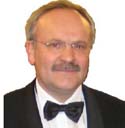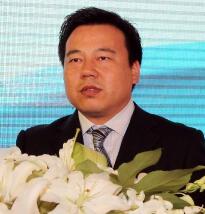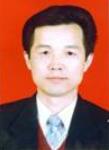
The 7th Global Conference on Materials Science and Engineering (CMSE2018)
November 1st-4th, 2018, Xi'an, Shaanxi, China

 |
Prof. Sigitas Tamulevičius Member of the European Materials Research Society Professor of the Physics Department, Kaunas University of Technology (KTU), Republic of Lithuania Biography:Prof. Dr. Habil. Sigitas Tamulevičius, obtained his Physics Engineer degree from the Moscow Engineering Institute in Physics (Moscow, former USSR) in 1979, a Ph.D. degree from the University of Vilnius (Lithuania) in 1984, Doctor Habilitus degree from Kaunas University of Technology (1994). More... |
|
Speech Title: 2-D nanostructures for sensor applications Abstract: Two types of ordered nanoparticle systems (linearly arranged nanoparticles in 1- D periodic structures either 2-D nanometer structures of nanoparticles) as potential building blocks for optical sensors or catalytic applications will be presented exploring both top-down and bottom-up approaches. In the top - down approach, reactive magnetron sputtering (high-power impulse magnetron sputtering mode-HIPIMS) of silver target was used to deposit thin films of diamond like carbon (DLC) nanocomposites including silver nanoparticles. Analysis of optical and electrical properties of thin DLC based silver nanocomposites (DLC:Ag) as well as effects of thermal treatment will be shortly presented. Structuring features of the nanocomposites using reactive ion sputtering combined with nanoimprint lithography or femtosecond laser irradiation was used to produce 1-D or 2-D submicron structures of DLC:Ag. More... | |
 |
Prof. Dr. Feng Liu Distinguished Professor of Yangtze River Scholar, Ministry of Education of China School of Materials Science and Engineering, Northwestern Polytechnical University, China. Biography:Prof. Feng Liu is currently in charge of the group of rapid solidification and preparation of metastable materials of State Key Laboratory of Solidification Processing, Northwestern Polytechnical University, China. His research fields include non-equilibrium solidification theory, solid-state transformation kinetics, united theory between non-equilibrium solidification and solid-state transformation, etc. He has been awarded Yangzi River Scholar Distinguished Professor (2012), Distinguished Young Scholar (2011), and Ten-Thousand Leading Talent (2016). He has published more than 280 scientific papers in academic journals, including 3 《International Materials Reviews》 and 37《Acta Materialia》. |
|
Speech Title: Synergistic effect of thermodynamics and kinetics of phase transformation in nonequilibrium metallic materials and its applications Abstract: By phase transformation, hot processing decides structure and property of metallic materials. With developing the hot processing technology, an originally independency between thermodynamics and kinetics controlling the phase transformation is replaced by a currently strong thermo-kinetic correlation. Traditional theories basing on the independency cannot deal with processes basing on the correlation. This key problem brings a big challenge and a precious opportunity for non-equilibrium phase transformation. Hencely, we proposed a philosophy of thermo-kinetic synergistic effect, built up a series of theories, new regulations and mechanisms for complex systems, and made a breakthrough in key technologies. | |
 |
Dr. William M. Cox Director and Principal Consultant, Corrosion Management Limited, UK Biography:William Cox is Director and Principal Consultant at Corrosion Management Limited, and is based in Rugby, UK. Dr. Cox has a BSc in Metallurgy from the University of Aston in Birmingham, and an MSc and PhD in Corrosion from the University of Manchester Institute of Science and Technology. More... |
|
Speech Title: Solving Corrosion Problems on Coal-to-Chemical Gasification Systems and Waste-to-Energy Boilers Abstract: Coal-to-chemical conversion based on the Lurgi-type gasification systems are a long-established approach to the exploitation of fossil fuel reserves, very often for strategic National benefit. However, in certain instances, extreme corrosion attack may occur on the thick-walled gasifier vessels and/or in the downstream processing systems. Similarly, waste-to-energy combustion equipment has been a popular and profitable approach to the utilization of waste streams to produce high-grade heat and electricity. Unfortunately, such boilers also can sustain unexpectedly high rates of corrosion attack that results in frequent unscheduled downtime, a requirement for replacement disposal capacity and lost revenue. This paper considers the underlying causes of such damage and describes successful approaches that have been employed to investigate and overcome these issues. | |
 |
Prof. Xin Yao Distinguished Professor of Yangtze River Scholar, Ministry of Education of China, School of Physics and Astronomy, Shanghai Jiao Tong University, Shanghai, China |
|
Biography : Prof. X. Yao, from Shanghai Jiao Tong Univ., got his Bachelor and Master degrees in Dept. Mater. Sci. and Eng., of Shanghai Jiao Tong Univ., and got hisPh.D. at Univ. of Liverpool, in. 1993. He was a research scientist at ISTEC(International Superconductivity Technology Center) in Japan (1993-2001). During work at ISTEC, he has grown the world record, large-sized REBCO single crystals. In his new lab at Shanghai Jiao Tong Univ (from 2002), he has extended the growth of REBCO crystals to the bulks and LPE films, focusing his interests on the phase formation and the growth mode in various RE-Ba-Cu-O systems. Speech Title: Superheating property of REBa2Cu3O7-x thin film and its applications in the growth of REBa2Cu3O7-x superconductors Abstract: Recently, we reported a superheating phenomenon of REBCO (RE=Nd, Sm, Y) thin films, e.g. the complete decomposition of a c-oriented YBCO film occurs at a temperature of 50 K higher than its peritectic temperature (Tp). The origins and influential factors of superheating property were investigated, involving film oriented structures, substrate materials, and phase diagram natures. On the other hand, for fundamental study and practical application, the film-seeded growth of REBCO superconductors has been conducted in our lab by Top-Seeded Solution-Growth, Top-Seeded Melt-Growth, and Liquid Phase Epitaxy. Making full use of their unique superheating property, we employed REBCO films as universal seed materials to induce the growth of 1) high-performance & high Tp REBCO crystals, such as NdBCO and SmBCO, 2) large-sized crystals, 3) recycling failed bulks. | |
 |
Dr. Alexander Khotsianovsky Pisarenko Institute of Problems of Strength of the National Academy of Sciences of Ukraine, Ukraine Biography : Dr. Alexander Khotsianovsky is currently a senior research fellow at the Institute of Problems of Strength (IPS), Kiev, Ukraine. After receiving the Ph.D. degree in Mechanical Engineering and Fracture Mechanics at the National Academy of Sciences of Ukraine in 1990, he conducted research in the field of innovative spacecraft and aircraft applications in IPS, Ukraine, as an invited research fellow in German Aerospace Research Establishment (DLR, Cologne,Germany,1993-1995), and Computer Control Solutions (CCS, Dublin, Ireland, 2001-2002). More... |
|
Speech Title: Comprehensive Strength Optimization of Spacecraft and Orbital Station Components: Outlook of Ukrainian State-of-the-Art and Off-Shelf Designs Abstract: The current state of spacecraft development worldwide implies a rejection of earlier achievements like US Spaceshuttles and Russian Proton/Progress launchers. Meanwhile, even older developments in Mir and SkyLab orbital stations return to focus in new lunar projects. The overinflated prices of NASA (US) and Roskosmos (Russia) can no longer withstand the competition with aggressive commercial players like Space X, Arianespace, etc. At this transition period, niche players with decades of experience in the spacecraft development, like Ukraine, become instrumental for larger countries, like China, with ambitious space projects. More... | |
 |
Prof. Jianping Li Professor in Materials and Chemical Engineering School, Xi’an Technological University; Head of Shaanxi Province Engineering Research Centre for Light Weight Alloys and Metal Matrix Composites, China |
|
Biography : Prof. Jianping Li obtained his Ph.D degree in Composite Materials from Shanghai Jiaotong University, China in 1997. As a visiting professor, he researched recrystallization and corrosion behavior of magnesium alloys in Manchester University, UK for two years. He is currently with the Professor in Materials and Chemical Engineering School, Xi’an Technological University, China, and the head of Shaanxi Province Engineering Research Centre for Light Weight Alloys and Metal Matrix Composites. His research is mainly associated with developing advanced cast/wrought aluminium/magnesium alloys and discontinous reinforced metal matrix composites, as well as corrosion control of light alloys and novel surface engineering for protection and functionality. The research has led to more than 10 national and province/ministry awards of China, including Second Prize of National Science and Technology Progress Award, China in 2016, and First Prize of Science and Technology Progress Award, Shaanxi, China in 2011. Speech Title: Development of cast high performance aluminium alloy used in advanced diesel engine | |